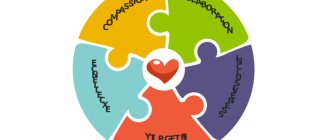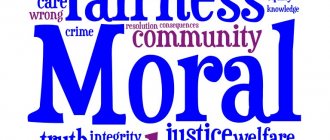Value is the significance, importance, usefulness and benefit of something. Outwardly, it appears as one of the properties of objects or phenomena. But their usefulness and significance are not inherent in them due to their internal structure, that is, they are not given by nature, they are nothing more than subjective assessments of specific properties involved in the field of social existence. People are interested in them and need them. The Constitution of the Russian Federation states that the highest value is the person himself, his freedom and rights.
Use of the concept of value in various sciences
Depending on what kind of science is studying this phenomenon in society, there are several approaches to its use. So, for example, philosophy considers the concept of value as follows: it is the socio-cultural, personal significance of specific objects. In psychology, value is understood as all those objects of the society surrounding an individual that are valuable to him. This term in this case is closely related to motivation. But in sociology, values are understood as those concepts that name sets of goals, states, and phenomena that are worthy of people striving for. As you can see, in this case there is a connection with motivation. In addition, from the point of view of these social sciences, there are the following types of values: material and spiritual. The latter are also called eternal values. They are not tangible, but sometimes they have much greater significance for society than all material objects combined. Of course, they have nothing to do with economics. In this science, the concept of value is considered as the cost of objects. At the same time, two types of it are distinguished: use value and exchange value. The former represent one or another value for consumers depending on the degree of utility of the product or its ability to satisfy human needs, and the latter are valuable because they are suitable for exchange, and the degree of their significance is determined by the ratio that is obtained in an equivalent exchange. That is, the more a person is aware of his dependence on a given object, the higher its value. People living in cities are entirely dependent on money because they need it to purchase the most necessary goods, namely food. For rural residents, financial dependence is not as great as in the first case, since they can obtain the products necessary for life regardless of the availability of money, for example, from their own garden.
Valuable pennies of Russia
This denomination is practically no longer found in circulation. There are also no rare items to be found here (we are not considering varieties visible only to experts here). But the numismatic market is beginning to show interest in wholesale lots from 1997, 1999 and 2009. In 2009, the Bank of Russia, by a willful decision, stopped minting the smallest denominations, so kopecks with the date “2009” immediately became infrequent. At auctions, Moscow kopecks from 2009 cost approximately 10 rubles. Their St. Petersburg sisters can get 30 rubles apiece.
A striking exception among kopecks and piglets is the mysterious pair of 1 and 5 kopecks of 2020. The history of their appearance is vague, but experts agree that the number of copies on the market rejects the hypothesis of the origin of these coins as samples. They are most often traded together. Prices start from 15,000 per pair. Sometimes pennies with the date “2017” are displayed separately, but these are rare cases.
Different definitions of values
The simplest definition of this concept is the statement that values are all those objects and phenomena that can satisfy human needs. They can be material, that is, tangible, or they can be abstract, like love, happiness, etc. By the way, the set of values that are inherent in a particular person or group is called a value system. Without it, any culture would be meaningless. But here is another definition of value: it is the objective significance of the variety of components (properties and attributes of a particular object or phenomenon) of reality, which are determined by the interests and needs of people. The main thing is that they are necessary for a person. However, value and significance are not always equivalent. After all, the first can be not only positive, but also negative, but value is always positive. Something that satisfies people’s needs cannot be negative, although here everything is relative...
Representatives of the Austrian school believe that basic values are a specific amount of goods or benefits that are necessary to satisfy human needs. The more a person realizes his dependence on the presence of a given object, the higher its value. In short, the relationship between quantity and need is important here. According to this theory, goods that exist in unlimited quantities, for example, water, air, etc., do not have special significance because they are non-economic. But goods, the quantity of which does not satisfy needs, that is, there are fewer of them than needed, are of real value. This view has both many supporters and opponents who fundamentally disagree with this opinion.
Determining the value of Russian coins
How to determine the value of Russian coins? To do this, it is better to specifically know the coins that have numismatic value, here are some:
- 1,2 and 5 rubles 2003. They are valuable due to record low quantities. There was a time when one of the Russian banks organized a promotion to buy these copies regardless of their condition.
- With a manufacturing defect or some kind of peculiarity - there is no mint mark or some other detail, etc. For example, in 2010, the St. Petersburg Mint made 2 stamps for the issue of coins with a denomination of 10 rubles. In the usual form, there is a groove between the wall (inside) and the lines of the zero, and in the unusual type, the lines inside the zero touch its walls (this option costs about 1000 rubles).
- Anniversary publications, especially if they are dedicated to important events or holidays of our country, for example, the Sochi 2014 Olympics. We have quite a few coins dedicated to this event.
Valuable specimens from the USSR era are more diverse. The following information helps determine the value of USSR coins:
- All proof coins of the Soviet Union are very expensive.
- Commemorative coins before the early 80s are also highly valued. In our catalog there are also such specimens, for example, “Olympics-80” coins.
- Coins made of precious metals from the 20s to 30s are also valued. For example, the cost of 15 kopecks in 1931 is more than 80,000 rubles.
Copies with manufacturing defects also have numismatic value.
presents to your attention investment and commemorative coins. Choose, buy, invest!
Changeability of values
This philosophical category has a social nature, since it is formed in the process of practice. In this regard, values tend to change over time. What was significant for this society may not be so for the next generation. And we see this from our own experience. If you look back into the past, you will notice that the values of the generations of our parents and ours differ in many ways from each other.
Main types of values
As noted above, the main types of values are material (life-enhancing) and spiritual. The latter give a person moral satisfaction. The main types of material assets are the simplest goods (housing, food, household items, clothing, etc.) and goods of a higher order (means of production). However, both contribute to the functioning of society, as well as to improving the quality of life of its members. And people need spiritual values for the formation and further development of their worldviews, as well as their worldview. They contribute to the spiritual enrichment of the individual.
Highest human values: make your list
Living Word, educational and psychological center | Kharin Alexander MikhailovichHighest human values. Our values are the bricks from which we build our lives. But these are all invisible and intangible bricks. They are components of our inner world. Our inner world is just as full of life as our outer world.
It’s so difficult for many of us to navigate our inner world. But if we do not focus on our interests, our deep needs and life motives, then in this case we will not be able to be happy. After all, happiness comes only when we live according to our inner world, our values. The highest human values and how they are present in your life determine your level of happiness, prospects and the amount of energy you have to achieve your goals. If the matter inspires, then we naturally achieve results faster and easier. And a person’s “native” values inspire the realization of goals.
The role of values in human life
The role of values in human life is high. The highest human values, hereinafter referred to as “values,” are the building material for our lives. All our successes, all the pleasure from life, the fulfillment of our destiny - all this is possible only if we rely on values. How can you immediately understand the values that belong to you? We dream, visualize, imagine our lives through values. If values are the building material of our life, then, naturally, such construction begins with a dream. Someone dreams of a close union in a couple: “they lived happily ever after and died on the same day,” someone dreams of career or personal growth: “only mountains can be better than mountains...”. And all these paintings are built from different materials. In the first case, a person lives and thinks in the category of relationships, in the second, career, abilities, etc.
System of life values in your life
The system of life values of each person is determined by a certain not very large list of values. This set of values is very individual. It is he who determines your life. What are the values? Every person has a set of 3-5 main values, which he uses as a tool to build his life. Everyone receives their benefits in life only thanks to their values. One person makes a living by going to war, another by building a business, and a third by acting in films. The basic values of a person determine the path of life and the way of implementation in life.
Highest human values
Below is a list of values and their descriptions. We are not always aware of what value guides us through life. Therefore, descriptions of values and their short definition are given. All this will make it easier to understand your values. In the following articles, you, dear reader, will be able to read about the motives. They provide an even better understanding of how values work and, as it were, bring sharpness to the goal. This article also talks a little about motives. Motives are the driving force that we can be aware of even without knowing anything about values. Also given are some qualities that are directly related to values.
Abundance
A person with this value perceives the world as a source of well-being, diversity and many opportunities. He himself will be generous. If this value is distorted, then the following options are possible. He can be stingy, greedy or, on the contrary, wasteful. He can cling to every opportunity as if it were the last (for example, constantly buying promotional products, looking for benefits in everything). He will not believe in the generosity of the world and will believe that “there is not enough for everyone,” no matter what - money, food, happiness, opportunities. The motives that guide them are: well-being, diversity, common good, material wealth, profit, savings, benefit.
Law
This is the value of law as a form of orderly interaction with people. For people who have this value, it is important to adhere to universal human principles: morality, morality, ethics. Negative qualities can manifest such qualities as arrogance, intolerance, dogmatism, mentoring, and excessive moralizing. Positive – decency, ethics, good organizational skills. This value can manifest itself through the following motives: social activities, mentoring, teaching, religion, morality, morality.
Development
People with this value strive for self-improvement, discovering existing abilities and developing new ones. It is important for them to put their existing knowledge into practice. In a broad aspect, they encourage the development not only of themselves, but also of other people, organizations, situations - everything. This is a direct inclusion in one of the laws of the universe: everything must develop.
Cognition
This is the desire to know and understand the world around us and ourselves. It can be both a self-sufficient value and an integral part of Development. People with such a value have an expressed thirst for knowledge, either in some specific areas, or they can be interested in everything (if there is a lack of awareness). Their main feature is curiosity (in the negative, curiosity). They are guided by the following motives: intelligence, information, knowledge, study, understanding.
True
This is the essence of everything - any knowledge, person, process, universe. People with this value strive to get to the bottom of things and find answers to their questions. In distortion, this means not only getting to the bottom of things, but also presenting to the world all the inconsistencies found and exposing the culprits, “bringing them to clean water.” Also a distortion is the desire to defend “your truth” and the refusal to look at the problem from different sides. In a positive aspect, such people are honest, sincere, fair, and open. These same qualities are valued in others. When distorted, these qualities turn into uncompromisingness, categoricalness, rigidity and intransigence. Motives: truth, justice, meaning, reason, naturalness, naturalness, correctness, search and resolution of inconsistencies.
Creation
This value is expressed by the desire to create new and useful things or improve existing ones. These can be both material objects (building houses, cooking borscht, repairing cars) and intangible objects (building family relationships, writing programs). People with this value are generally not inclined to destroy anything. Distortion most often expresses itself in a feeling of inability to act. Motives: usefulness, practicality, effectiveness, construction, craftsmanship, manual labor, design, improvement, improvement, preservation.
Creation
This is the creation of something new and unique (this is different from creation). This is the desire to bring something original into the world through oneself.
Liberty
This is the value of having no restrictions or boundaries. In harmonious development, freedom is perceived naturally, as a matter of course. If there are distortions (deficiency), a person begins to defend his freedom, painfully endures any encroachment on it (even imaginary), tries to throw off everything that even slightly resembles restrictions. He can protest against lack of freedom both openly and actively, and within himself, resisting and resisting. The motivation of such people is independence, i.e. motivation "from". Positive qualities include the following qualities: non-standard thinking, openness to new things, absence of stereotypes, idealism. In the negative: eccentricity, anarchism, uncontrollability, denial of authority, spirit of contradiction. In addition to independence, they can be guided by the following motives: change, reform, democracy, equality, adventure.
Unity
This dimensional value includes the importance of interacting with other people. A person with this value is interested in making contacts, building relationships and maintaining them, taking into account the interests of other people - developing all types and forms of interpersonal relationships. If this value is distorted, we can see 2 scenarios. A person can get stuck in relationships and completely depend on them, sometimes losing himself. Or he will become a misanthrope and say that he hates people and he is better off without them, but this is a mask - he is so afraid of the pain of relationships that he prefers to avoid them. The motives that guide people with this value: friendship, family, family relationships, kinship ties, kin, partnership, cooperation, identification with another person, acceptance, reciprocity, support, approval by other people.
Love
It can manifest itself in two ways. At the lower levels it reveals itself as human love, a close relationship with a loved one. On a high level - this is mercy, compassion, love for one's neighbor, harmony and acceptance of divine laws.
Struggle
This is one of the forms of development. Just as truth is born in a dispute, so struggle ultimately leads to harmony (if there are no distortions). Positively, people with this value have the following qualities: courage, endurance, determination, competitiveness, decisiveness, confidence, perseverance, perseverance, activity, self-reliance. Distortions turn these qualities into negative ones: conflict, cockiness, aggressiveness, impatience, self-confidence, impudence, distrust, self-obsession, rudeness, arrogance. Motives: strength, will, victory, extreme, risk, competition, leadership, victory, career, achievements, heroism, defending one’s interests.
Power
From the word “I can”. This is the importance of scale in one’s activities, increasing momentum, expanding. This value helps a person become the best at what he does and constantly increase the scale of his activities. For example, if a cook is powerful, it looks like this. First, he comprehends all the subtleties of his skill and develops in it. He is not afraid to experiment and go beyond what he has been taught. Over time, he becomes a master of his craft and reaches a new level - he becomes a chef and manages other chefs. Gradually gaining management experience, he comes to the readiness to open his own establishment. Opens, gets established in the market, opens the next one, launches a network, etc. This value implies the presence of energy and the willingness to realize it. If there is no activity, i.e. where to direct energy, a distortion is born: a person begins to inflate the scale of his ego. This is how the thirst for power appears, the desire to suppress others, to assert oneself in any way. In this case, we see the following qualities: authoritarianism, selfishness, egocentrism, cruelty, self-confidence, self-obsession, etc. Possible motives for people with this value: development, expansion, power, authority, inner strength, superiority, control, influence, achievement.
World
In a high sense, this is the acceptance of the world order, the universe. At lower levels it is the value of the surrounding world and everything connected with it. This includes nature - from the butterfly to the universe, a thirst for travel, inclusion in the world - interest in geography, biology, physics, astronomy, etc., but not necessarily from a position of knowledge, but from a position of participation.
Life, essence, being
These 3 words describe the different levels at which a given value can be found. In the highest sense, it is an awareness of the importance of the presence of oneself and all things in this world. At a lower level, this is the importance of everything that gives life and helps to prolong it. Motives of this level: health, youth, adolescence, recovery, restoration, salvation, motherhood, fatherhood, children. At the lower level, it is the value of expressing yourself in this world. In this case, the motives are: fame, honor, prestige, status, popularity, self-expression, originality. If the value is developed harmoniously, a person has the following qualities: brightness, openness, cheerfulness, activity, independence, artistry, authority. If there are distortions, it looks like this: vanity, narcissism, egoism, delusions of grandeur, a tendency towards tinsel and ostentation, pomp, pomp.
Order, structure
This is the importance of hierarchy, order and structure as a form of arrangement of existence and interaction. Manifests itself as analysis, creation of rules and regulations for effective interaction, rationalization of processes and relationships, and a systematic approach to solving problems. Additional motives: organization and management of processes, structure, consistency, control, stability, competence, efficiency, rules. Qualities: love of order, reliability, discipline, diligence, self-sufficiency, seriousness, inner core. Qualities in the presence of distortions: unsociability, pessimism, despotism, conservatism, coldness, suspicion.
Integration into the structure, unity with the system
Implies the importance of realizing oneself as part of something larger with an understanding of one’s place and mutual significance - oneself for the system and the system for oneself. This differs from the previous value, in which the structure is placed at the forefront, and the person is only the executor of its rules. Depending on the level of human development, the scale of the structure may also differ. For example, for some it is the value of being embedded in some organization, for others – in one’s own family (not to be confused with Unity), and for others – being embedded in the world, the universe, etc. Motives that roughly describe this value: sense of duty, service, self-sacrifice, regeneration, transformation. Qualities: conscientiousness, pedantry, analyticalness, knowledge of the depth of things, adaptability to any conditions, cleanliness, objectivity. Qualities in distortion: meticulousness, tediousness, disgust, obsession with trifles, meticulousness.
Balance
This is the importance of balance in everything, in a sense it is harmony (partially). This value is voluminous; it has its own aspects in many areas. This is diplomacy, compromise, agreement. It is also a sense of proportions, a sense of proportion, a combination of various components, distinguishing nuances, the ability to harmoniously combine dissimilar elements. Note: If you notice balance in yourself regarding interpersonal relationships, but it is not expressed in other areas, it is likely that the Unity value is involved, not Balance. Also, for example, if you have a developed sense of taste, you are well versed in the combination of colors and textures, and the rest is so-so, most likely your value is Beauty.
beauty
This is the significance of the visual component of the outside world. To some extent, it can be regarded as a special case of Balance. Motives: aesthetics, sense of taste, fine art and other ways of creating and transmitting visual images. In the presence of distortion, beauty is given too much importance when the internal content loses significance for a person or is relegated to the background.
Dear readers, in order to understand how your life is built, choose 5-7 values for yourself, arrange them in order of importance from the first to the last point. This will be your main list of values. Compare this list with your main life scenarios. If you struggle with everything and everyone, then one of your key values is struggle, it should be in 1-2 place on your list. If you build relationships with everyone, then one of your core values is “unity.” Let me draw your attention to the benefits you get when you know what your values are:
- You build your life consciously, seeing immediate and distant prospects in advance;
- Do not make gross mistakes and do not repeat them in events;
- You receive energy from the realization of desires;
- Feel happy;
- You can live according to your purpose;
- You are inspired to achieve and create in every moment of your life.
Study your values, live by them, build your future and then your life will improve. You can talk about your values at a meeting with a psychologist “Private Questions” tomorrow, February 10.
| Company: | Living Word, educational and psychological center (all company articles) |
The role of values in the life of society
This category, in addition to representing some significance for society, also plays a certain role. For example, a person’s mastery of various values contributes to the acquisition of social experience, as a result of which he becomes involved in culture, and this, in turn, affects the formation of his personality. Another important role of values in society is that a person strives to create new goods, while preserving old ones that already exist. In addition, the value of thoughts, actions, and various things is expressed in how important they are for the process of social development, that is, the progress of society. And on a personal level – human development and self-improvement.
Family values
Family values are traditions, actions, traits that are cultivated in an individual family and are partially passed on from generation to generation.
Why partially? Future spouses grow up and are raised in different families, with different family structures. Having created their own family, a husband and wife unite their habits, tastes, and culture. As a result, something from the family value system fades into the background, and something new appears.
But the main thing in the family value system remains unchanged:
- trusting relationship;
- mutual respect;
- confidence that a loved one will come to the rescue in any difficult situation.
It happens that starting a family does not live up to expectations of finding a partner with whom you would like to live together until a ripe old age and raise children together. There is no need to despair, fate will certainly give you another try.
Classification
There are several classifications. For example, by type of needs. According to it, a distinction is made between material and spiritual values. But according to their significance, the latter are false and true. Classification is also carried out according to areas of activity, depending on their carrier, and according to the time of action. According to the first, they distinguish between economic, religious and aesthetic, the second - universal, group and personal values, and the third - eternal, long-term, short-term and momentary. In principle, there are other classifications, but they are too narrow.
Attitudes, their types and role in human life
Attitudes are an ambiguous concept; in psychology it is used in two meanings:
- as a certain, predetermined perspective of perception of reality, events, people;
- as a predisposition to a certain behavior or type of social activity.
In general, an attitude can be considered as a person’s readiness to perform certain actions and actions. For example, before crossing the road, a person usually automatically checks to see if a car is moving. This triggers an attitude formed in childhood. Or another example: seeing through the window that it is cloudy and windy outside, we dress warmer, as the setting is triggered - if there is wind, then it is cold.
These are the so-called everyday attitudes, and ideological attitudes are in many ways close to beliefs, connected with them and often formed in inextricable unity. For example, a person with nationalist beliefs has attitudes toward perceiving people of other nationalities as less valuable, flawed, and endowed with unpleasant qualities.
Unlike beliefs, attitudes are less conscious. For example, there is such a widespread attitude that the higher a person’s social status, the smarter, more educated, and more professional he is. Therefore, without realizing why, we trust the opinion of our boss more than that of a subordinate or even a colleague.
Types of installations
In psychology, there are 3 types of attitudes depending on their influence on a certain area of activity:
- Meaningful attitudes relate to the content of our consciousness and include several components: behavioral – associated with the willingness to act in accordance with beliefs; informational, forming a person’s belief system; evaluative, influencing a person’s attitude to the world and expressed in emotions of sympathy and antipathy.
- Goal settings define the process of goal setting. This type of attitude includes, for example, the idea of the importance of career growth and the need for hard work to achieve success, or the conviction of a girl who associates her future exclusively with marriage. Goal settings support a person’s activity in case of failure and encourage him to start moving towards the goal again and again.
- Operational settings control the choice of ways and means to achieve a goal. This type is perhaps the least stable. Attitudes change under the influence of the learning process, personal experience, advice from others, information from various external sources (books, the Internet, etc.). No matter how inert a person’s thinking may be, he will never endlessly perform actions that do not bring results, but will try to find something more effective.
The identification of these types is rather arbitrary; in the real consciousness of a person, all attitudes are intertwined and interconnected.
Material and spiritual values
We have already talked about the first ones above; everything is clear with them. These are all the material goods that surround us, which make our life possible. As for the spiritual, they are components of the inner world of people. And the initial categories here are good and evil. The former contribute to happiness, and the latter – everything that leads to destruction and is the cause of discontent and misfortune. Spiritual ones are true values. However, to be such, they must coincide with significance.
Classification of values
It is conventionally accepted to adhere to the following classification of values. They are divided according to content and form of existence.
Content is not only consumer and material values. This includes moral, religious, political, spiritual, aesthetic, and social values.
The form of values includes spirituality and commitment to ideals.
Morality and piety do not go hand in hand. If religion teaches a person to care only about representatives of his community and think about the afterlife, then morality and ethics are aimed at all representatives of society. People learn to be merciful, show compassion not only to their neighbors, but also to everyone in need. This is how patrons and philanthropists appear. Each person forms his own idea of good and evil, of good. This is how spiritual ideals appear. Spirituality in our classification is placed both in the content and in the form of being.
Religious and aesthetic values
Religion is based on unconditional faith in God, and it does not require any proof. Values in this area are guidelines in the lives of believers, which are determined by the norms and motives of their actions and behavior in general. And aesthetic values are everything that gives a person pleasure. They are directly related to the concept of “beauty”. They are associated with creativity, with art. Beauty is the main category of aesthetic value. Creative people devote their lives to creating beauty, not only for themselves, but also for others, wanting to bring true joy, delight, and admiration to others.
Who to turn to for help
To avoid mistakes, you can use the help of specialists and special services:
- Coin catalogue. With its help, you can identify old coins and find out their value. You can use our catalog, which contains investment, commemorative and antique coins. This way, you can not only compare your product and determine the price of the coin based on a photo from the catalog, but also invest in a reliable and liquid instrument.
- Certified appraisers. Some numismatists are specially trained to evaluate the condition and value of coins. They can determine the value of a coin from a photo, but for an accurate assessment it is better to show the product itself. You can find out the contacts of specialists from local coin dealers or on trusted websites.
Personal values
Each person has his own personal orientation. And they can be radically different for different people. What is significant in the eyes of one may not be valuable to another. For example, classical music, which brings lovers of this genre into a state of ecstasy, may seem boring and uninteresting to someone. The values of an individual are greatly influenced by factors such as upbringing, education, social circle, environment, etc. Of course, the family has the strongest impact on the individual. This is the environment in which a person begins his primary development. He receives his first idea of values in his family (group values), but with age he may accept some of them and reject others.
The following types of values are considered personal:
- those that are components of the meaning of human life;
- the most common semantic formations that are based on reflexes;
- beliefs that relate to desirable behavior or the completion of something;
- objects and phenomena to which the individual has a weakness or is simply not indifferent;
- what is important to every person and what he considers his property.
These are the types of personal values.
What are material assets?
Materialism includes a set of values and goals focused on wealth, possessions, image and status. These factors are a fundamental aspect of a person's value system, which is in relative conflict with goals concerning the well-being of others and one's own personal and spiritual growth.
Substantial evidence suggests that people who place a relatively high priority on materialistic values and goals consume more products and take on more debt, have lower quality interpersonal relationships, act in more environmentally destructive ways, have unfavorable motivations for work and education, and report lower personal and physical well-being. Experimental activation of materialistic goals leads to similar results.
Given these issues, researchers have analyzed ways to reduce people's materialism. Successful interventions encourage intrinsic values and goals, increase sensitivity to personal safety, and/or block materialistic messages from the environment. These interventions would likely be more effective if society also adopted policies that reduced modern culture's emphasis on consumption, profit, and economic growth.
A new approach to defining values
Values are opinions (beliefs). Some scientists think so. According to them, these are biased and cold ideas. But when they begin to activate, they mix with feelings, and at the same time receive a certain color. Others believe that the main values are the goals that people strive for - equality, freedom, welfare. It is also a way of behavior that contributes to the achievement of these goals: mercy, empathy, honesty, etc. According to the same theory, true values should act as certain standards guiding the assessment or choice of people, actions and events.











